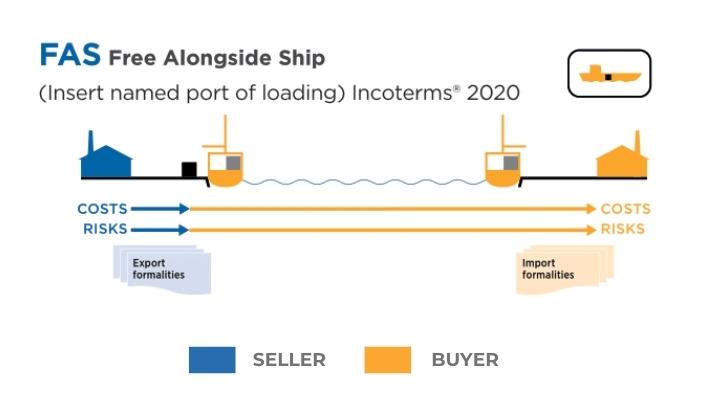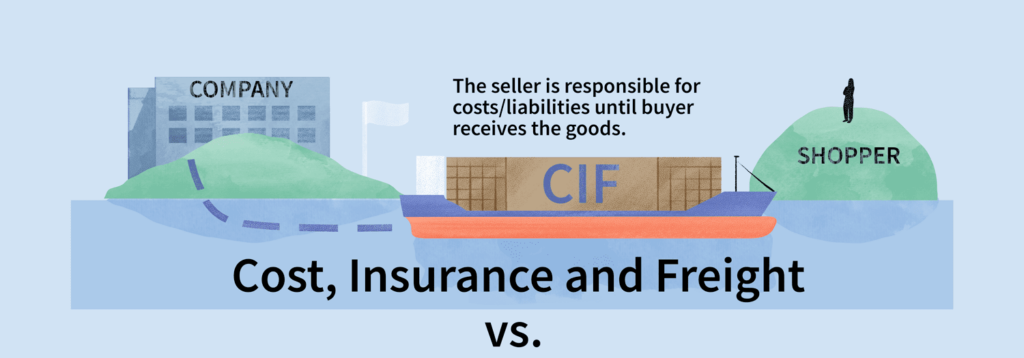The full name of FAS is Free alongside Ship. It means that the seller delivers the goods to the side of the ship or in the barge at the designated port of shipment, and handles all customs procedures required for the export of the goods when it is necessary to go through customs procedures. all costs and risks.
*In the trade of bulk goods, especially in the trade of primary products such as wheat, cotton, soybeans, ores, exporters usually use Free alongside Ship.
The main obligations of the seller in FAS
- Responsible for delivering the goods to the ship designated by the buyer at the designated port of shipment within the prescribed time limit.
- Responsible for handling the export procedures of the goods and bear the cost of export customs clearance.
- Bear the risks and costs from the time the goods are handed over to the buyer’s side at the designated place.
The main obligations of the Buyer in FAS
- Accept the relevant documents provided by the seller, accept the goods, and pay for the goods according to the contract.
- Bear the risks and expenses until the goods are handed over to the ship’s side at the designated place.
- Obtain an import license or other officially approved documents at your own risk and expense, and go through the customs procedures required for the import of goods, and pay customs duties and other related fees.
Points to note in actual business in FAS
A. Under FAS terms, ship’s side usually refers to the reachable area of the ship’s cargo crane or shore handling rigging.
B. When the loading port is crowded or the large ship cannot approach, the seller can change the delivery terms to “Free on Lighter” with the buyer’s consent. At this time, the seller’s responsibility is only when the goods pass the barge. Until then, the cost of barge and its risks shall be borne by the buyer.
C. Under the FAS term, when the buyer fails to notify the seller of the shipping vessel, place of shipment and delivery time in a timely manner, or the designated vessel fails to arrive at the port of shipment on time, or the vessel arrives on time but cannot complete the loading work or when loading is stopped early, risks and costs can be transferred in advance after the goods have been specified.
Related video:
D. Ship and cargo connection problem: If the ship designated by the buyer fails to arrive at the port on time to receive the goods, or stops loading the goods earlier than the specified time, or the buyer fails to issue a dispatch notice in time, as long as the goods have been clearly marked out, or If other methods are identified as the goods under this contract, the risks and expenses arising therefrom shall be borne by the buyer.
Comparison with other Incoterms
FAS and FOB
FAS and FOB have similarities in that both require the seller to be responsible for delivering the goods alongside the ship. However, FOB imposes additional obligations on the seller, such as loading the goods on board. FOB is usually used for container shipping.
FAS and CFR
Both FAS and CFR involve delivery of the cargo alongside the ship, while CFR includes freight to the named port of destination. The seller in CFR is responsible for signing the contract and paying the primary transportation costs to the destination.
More content about CFR in the below:
FAS and CIF
CIF is similar to CFR, but it also includes shipping insurance arranged by the seller. The seller is responsible for obtaining and paying for insurance and the cost and freight of transportation to the named port of destination.
If you are looking for a company that can provide you the service for freight from China to USA, Xiongda will be your best choice.For all your needs for shipping from China to USA, please contact us today!



